Hemingway, Faulkner, McCarthy and Dread Pirate Roberts walk into a café
Fighting words. Or: Fifteen or so opinions on writers and writing
Some opinions, is all:
Cormac McCarthy moving west was like what they said about Elvis dying — a good career move. But the books were better before, when he was writing about Tennessee.
Favorite McCarthy? SUTTREE.
When McCarthy quit Tennessee to write about the West, he created a void. Or anyway, left a job available, for anyone brave or crazy or talented enough to try and fill it. Twenty years after SUTTREE was published, along came William Gay, sort of like the Dread Pirate Roberts in “The Princess Bride.” He wrote Southern books, Tennessee books, just like McCarthy used to do, almost exactly like McCarthy, as knotty and as lyrical and as luminous. Gay became the Dread Pirate Roberts. I don’t say all this to degrade Gay’s books, which I treasure, as unoriginal or imitative. Gay’s writing was remarkable. I don’t think anybody else could have done what he did. I don’t think anyone ever will. Dread Pirate Roberts, literary division, Tennessee region, died with him, surely.
Recommended Gay? It’s probably not, strictly speaking, his best, but I particularly love THE LOST COUNTRY, his SUTTREE.
A McCarthy book people claim to love but I think they’re lying? THE ROAD.
McCarthy or Gay? A dread pirate by any other name … but OK, if you’re putting a cutlass to my neck, McCarthy. Of course, McCarthy. Because he was there first. Because of SUTTREE, which is my favorite book ever. (I remember Gay talking about SUTTREE at the Southern Festival of Books, when it was in Memphis, years ago. I don’t remember whether he said it was his favorite McCarthy book or his favorite book, period; I can’t believe it wasn’t both.)
In a review of Gay’s PROVINCES OF NIGHT, in The Washington Post, Madison Smartt Bell wrote: “Gay does McCarthy so very well that often his version is as good as the real thing. He’s mastered McCarthy’s elliptical backwoods dialogue and his darkly comic set pieces.” But he also wondered “why would any writer enslave himself to another in this way?”
Because he could, I suppose. Or because that’s just the way it came out, when he sat down to work, deep under the influence of McCarthy as some are of Hemingway or Faulkner or Three Queens bourbon.
Personal preference: knotty or spare? Knotty, all day.
Faulkner or Hemingway? The former, by a Mississippi country mile, for his force and daring, especially for his language. For the “dim coffin-smelling gloom sweet and oversweet with the twice-bloomed wisteria” and “yellow slashes of mote-palpitant sunlight” and the “masculine solitude in what might be called the halfacre gunroom of a baronial splendor” — all that just from the first 40 pages of ABSALOM, ABSALOM!
Not so, Hemingway, whose favorite word might have been “and.” Somewhere around page 100 of THE SUN ALSO RISES, he wrote:
We had coffee at the Iruña, sitting in comfortable wicker chairs looking out from the cool of the arcade at the big square. After a while Bill went to write some letters and Cohn went over to the barber-shop. It was still closed, so he decided to go up to the hotel and get a bath, and I sat out in front of the café and then went for a walk in the town. It was very hot, but I kept on the shady side of the streets and went through the market and had a good time seeing the town again. I went to the Ayuntamiento and found the old gentleman who subscribes for the bull-fight tickets for me every year, and he had gotten the money I sent him from Paris and renewed my subscriptions, so that was all set. He was the archivist, and all the archives of the town were in his office. That has nothing to do with the story.
When I got to that last sentence I almost screamed at the page, “What story!?!”
Then Hem went on to say:
Anyway, his office had a green baize door and a big wooden door, and when I went out I left him sitting among the archives that covered all the walls, and I shut both the doors, and as I went out of the building into the street the porter stopped me to brush off my coat.
This was 1926. A little early in his career for self-parody, I’d have thought.
Tightly plotted or lyrically written? Lyrically written, but a little plot’s fine if it doesn’t get in the way. I’m kidding, some. But here Hemingway was giving me neither. He may give you both, and more besides. We could talk about it sometime. We could go for a walk and come upon a café and sit outside and have a drink and another drink and talk about the war and bullfighting and Paris and women and the merits of certain literary styles.
A book that reminded me of THE SUN ALSO RISES but that I actually enjoyed? Hunter S. Thompson’s THE RUM DIARY. They made a decent movie of it, incidentally.
A writer sometimes compared to Hemingway but who could write bullrings around Papa? Tom McGuane.
A wild man in his early days, McGuane. A great lover of the outdoors, always. Ran with a fascinating crowd — wrote a song with Warren Zevon. All very Hemingwayesque, in its way. But while Hemingway wanted fame, McGuane said about his first brush with the demon:
Yeah. In fact I remember when 92 in the Shade came out, there was a big excitement about it. It was on the front page of The New York Times book review and all that, with my picture. I remember how embarrassed I felt. I really did. I just squirmed, ’cause that was not what I was wanting at that moment and I thought: “well, this will soon blow up in my face.” One of the reasons I think I love writing short stories is that people who love and read them are only there out of a love for literature.
I’m not saying Hemingway is shit or that he doesn’t belong in the literary hall of fame. I’m not saying there’s not deep meaning below the surface that I’m missing or refuse to acknowledge. Just saying that in my recent re-reading of him (THE SUN ALSO RISES, A FAREWELL TO ARMS, some short stories), I’m mostly unmoved, as ever, and frankly a bit baffled. The man, the life, the legacy — yes, all quite legendary. But the writing, the words, the books? Really?
Still, though, to take out an old Faulkner line and buy it a drink:
Between Hemingway and nothing, I will take Hemingway.
Bonus material:
Chapter 16, the terrific literary site for Humanities Tennessee, was celebrating 50 great Tennessee books from the past 50 years. They asked me to participate and I picked SUTTREE — you know, my favorite novel and McCarthy’s masterpiece.
My essay mostly hails the book itself — the setting, the wild cast of characters, those cracking sentences — but I also get a little feisty with those readers and scholars who revere the McCarthy of the West and Southwest, who find the Southern version too in thrall of Faulkner.
Yes, I know BLOOD MERIDIAN. A great book, beautifully written — and savagely so. But you can have it, for this exercise of identifying McCarthy’s masterwork. You can have that and The Border Trilogy and all the pretty horses they rode in on. You can have THE ROAD and its post-apocalyptic hellscape — early 1950s Knoxville was as scary and more compelling.
Here’s a link to the essay. Enjoy.


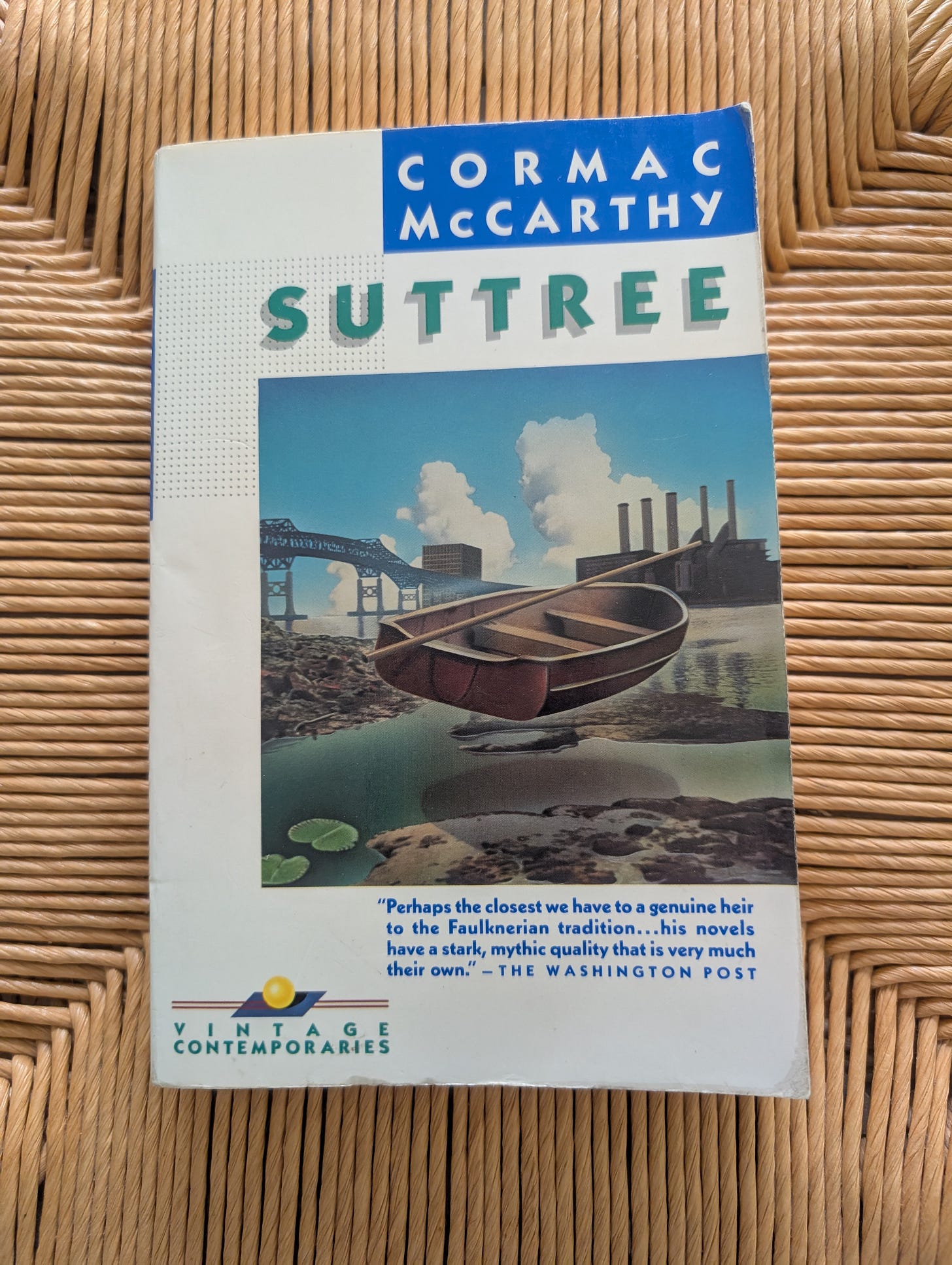
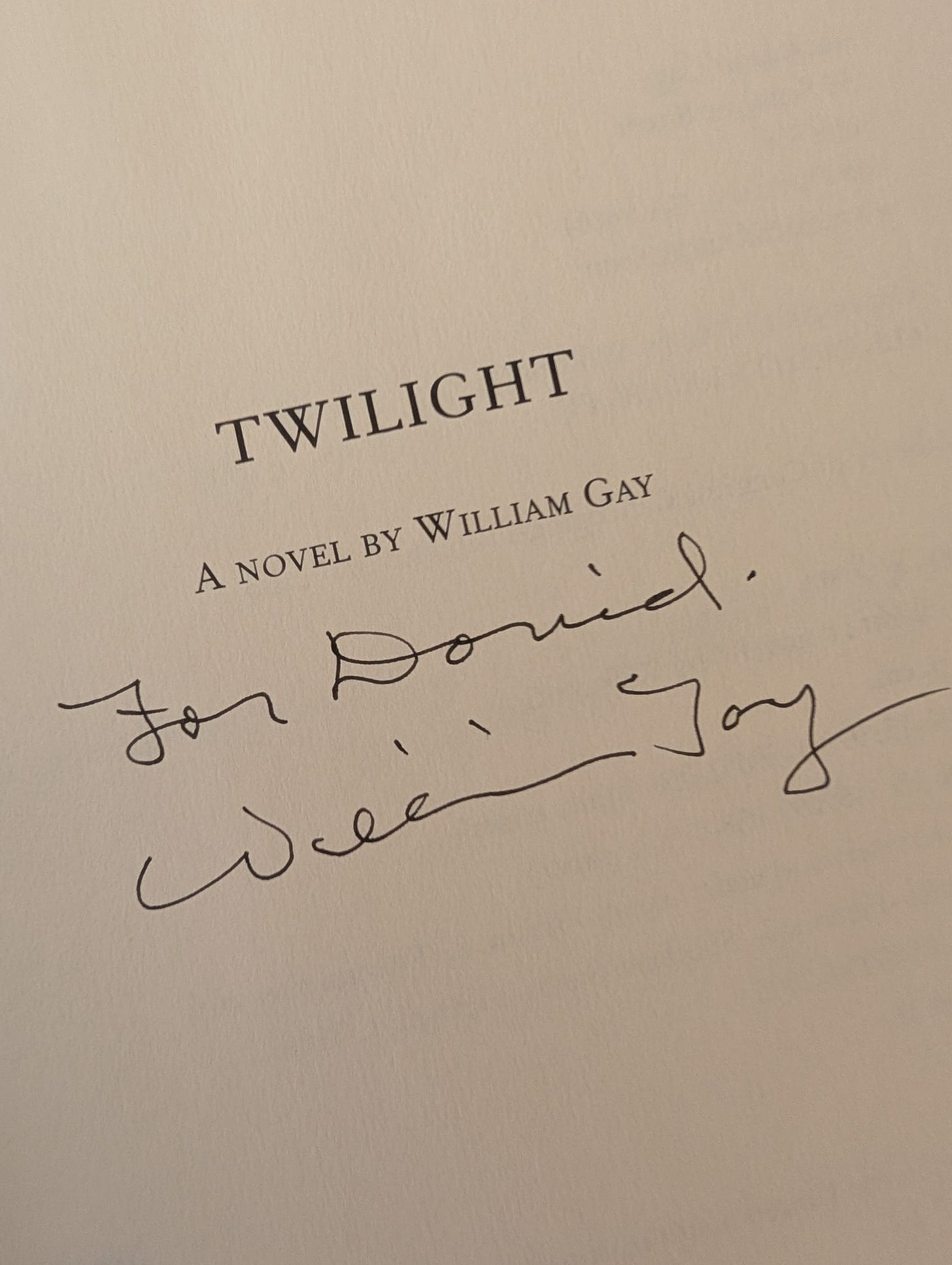
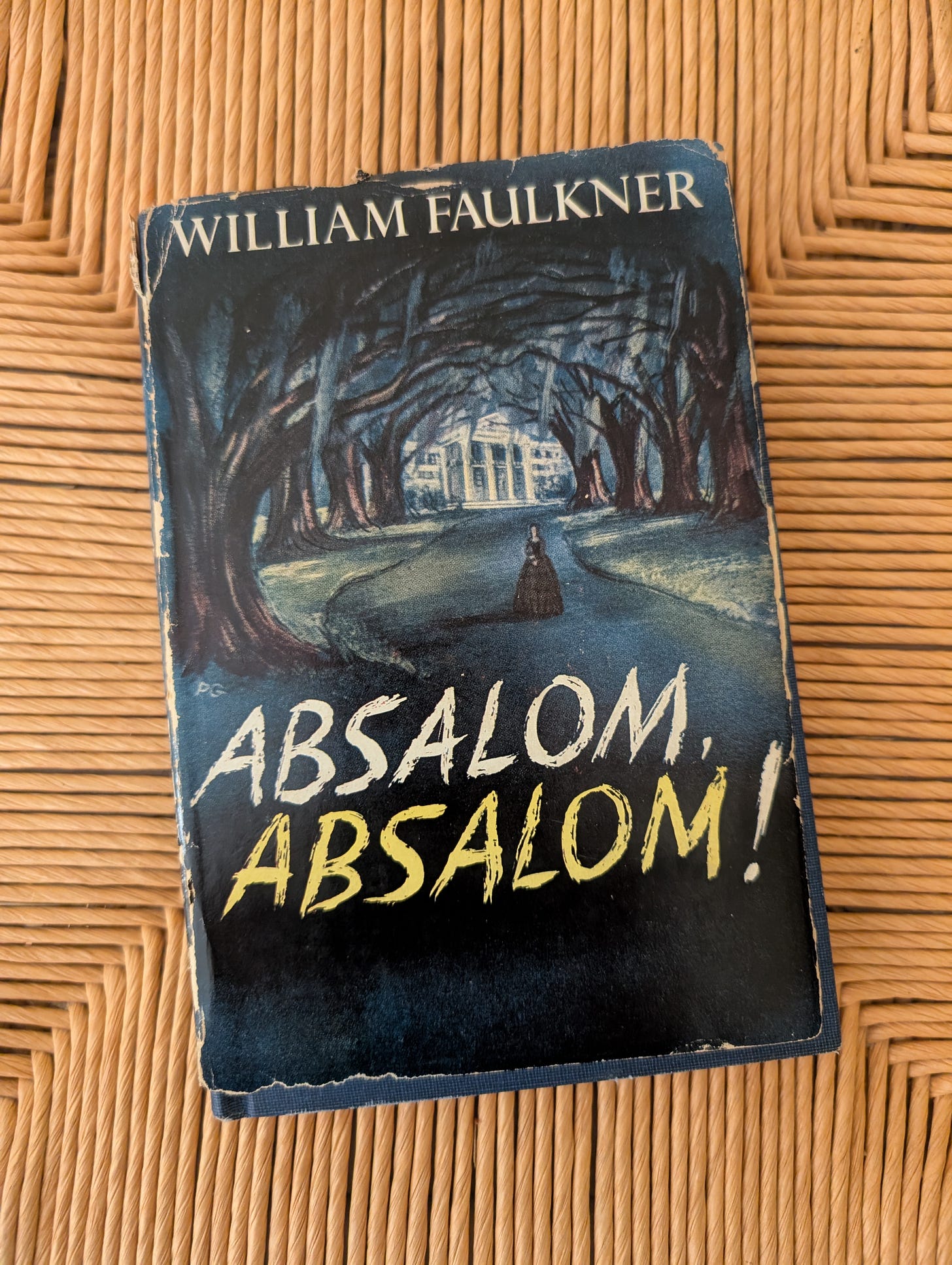
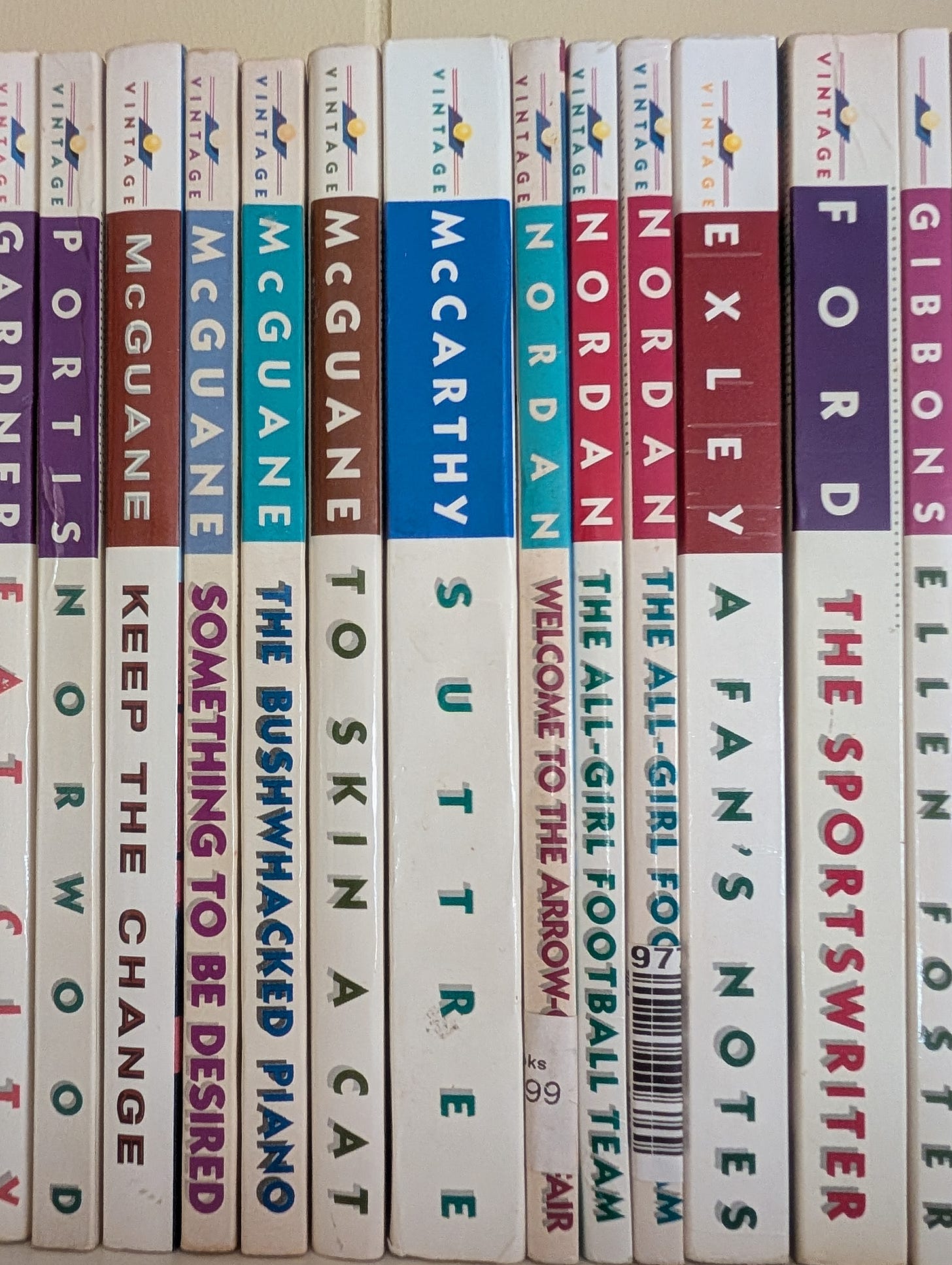
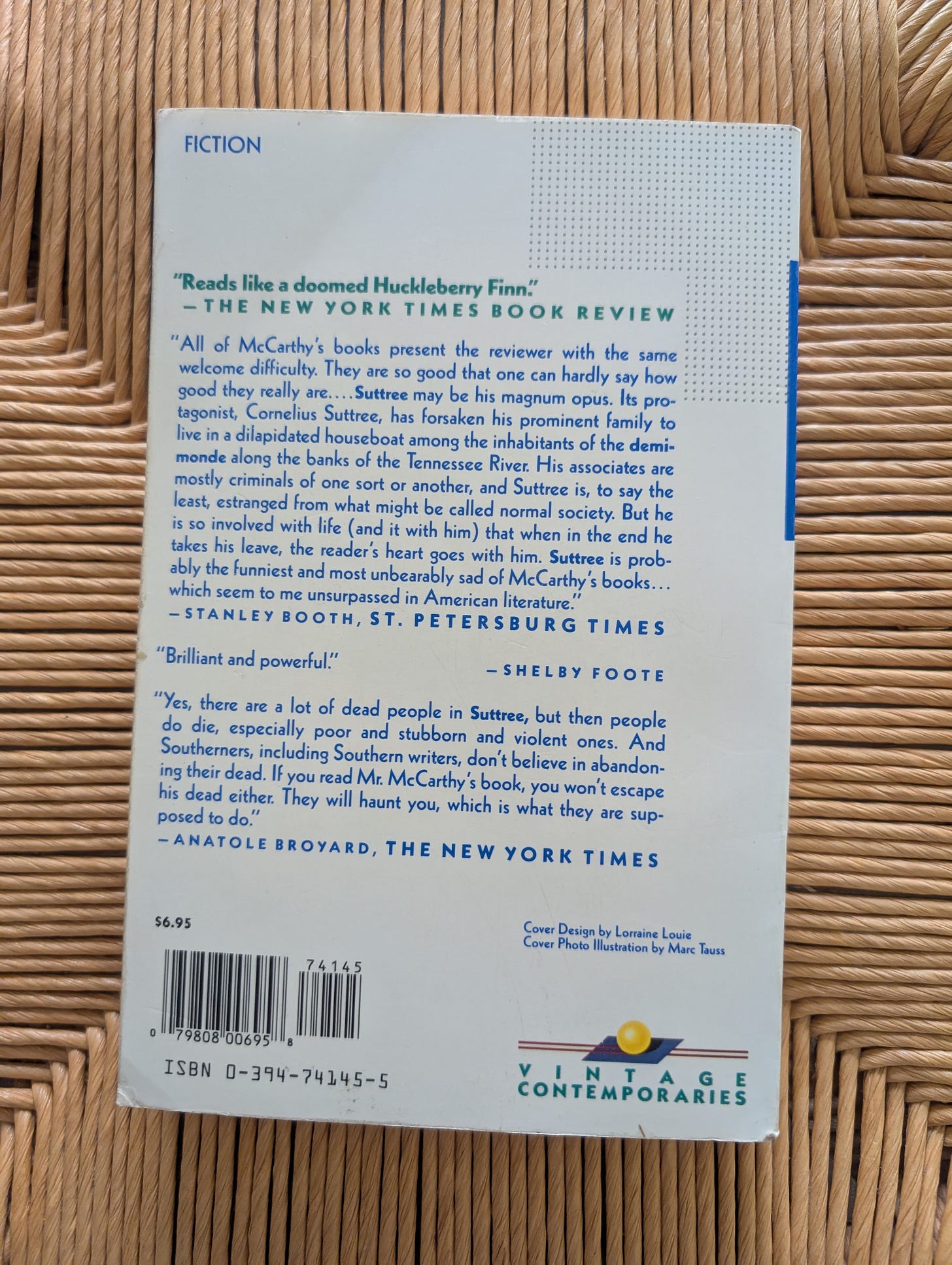
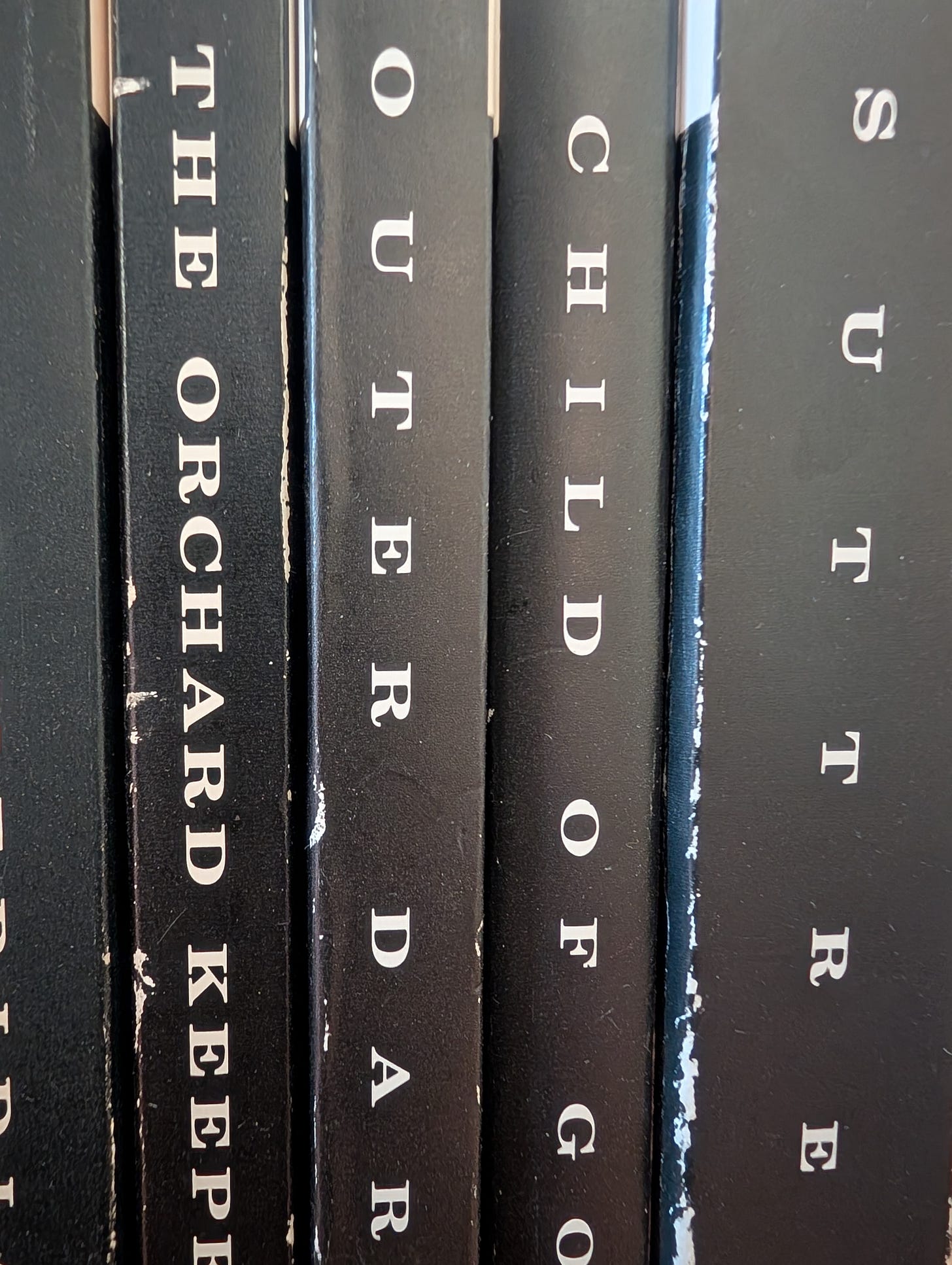
When I was in undergrad in Chattanooga, UTC held (and still does) what's called the Meacham Writer's Conference. I sat in a workshop led by William Gay, and he read the very first story I ever wrote. We had a cigarette outside the building. I drove him to the theater where he'd read ... I think "The Paperhanger" ... in my Jeep and we talked about Cormac McCarthy, and Gay told me he greatly preferred his Tennessee novels. I'd only read All the Pretty Horses so far. Of course I loved ATPH, but then I read the Tennessee stuff. And he was right.
Getting to meet him and talk to him early in my reading and writing life was something I'll never forget. He wore faded blue jeans, a gray sport jacket over a Bob Dylan tee shirt, and looked about one thousand years old. I still love his work, especially the collection and Provinces of Night, and I think he developed a style that was unique, even though he did draw a lot from McCarthy. He said he'd sent McCarthy some work in the '70s, and McCarthy actually wrote back! He told William he talked about the moon too much.
Still I prefer Tennessee McCarthy to Gay, because the work in books like Child of God and Suttree (my favorite as well) is so singular, so inimitable in its magic. Anyway, cheers to William Gay.
Love your praise and thoughts on Faulkner. Though I love Faulkner and Hemingway both, they could get seen as exact opposites to each other. The former wrote on a whole other level I've never felt before. Absalom, Absalom, what a book.